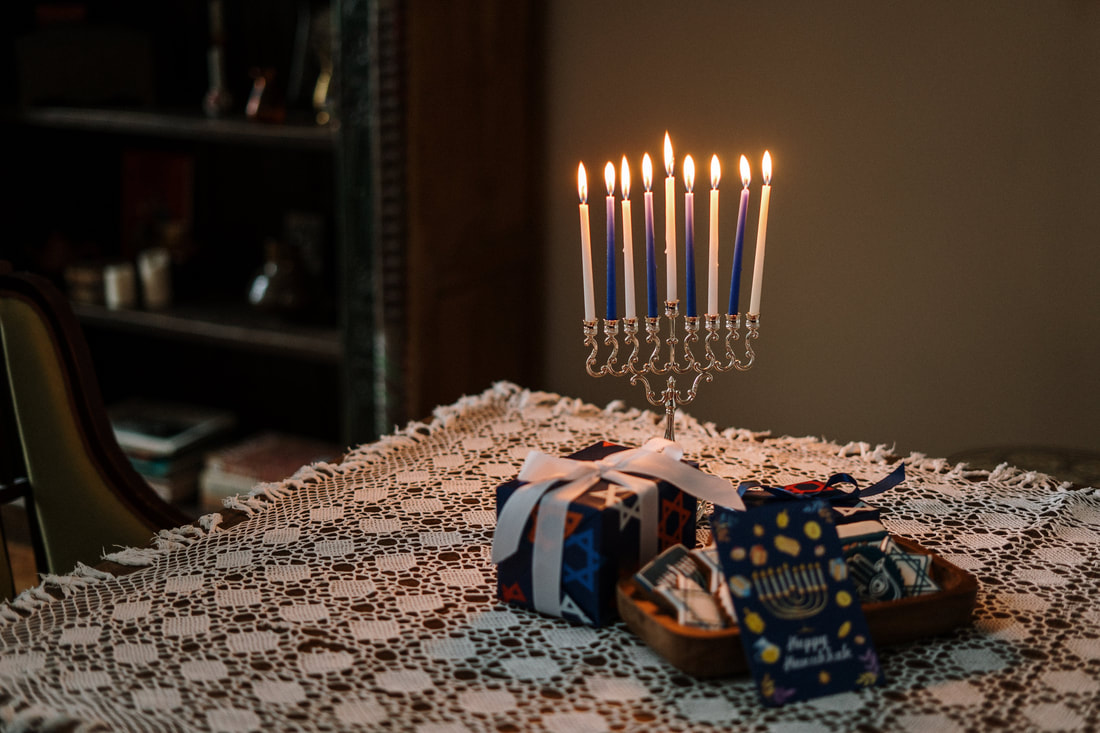|
"Command the Israelites to bring you clear oil of pressed olives for the light so that the lamps may be kept burning...Aaron and his sons are to keep the lamps burning before the Lord from evening till morning. This is to be a lasting ordinance among the Israelites for the generations to come." (Exodus 27:20,21) This command from the Lord is repeated in Leviticus 24:2-4. "Command the Israelites to bring you the clear oil of pressed olives for the light so that the lamps may be kept burning continually...Aaron is to tend the lamps before the Lord from evening till morning, continually. This is to be a lasting ordinance for the generations to come. The lamp on the pure gold lampstand before the Lord must be tended continually."
Keeping the light burning was the main responsibility of the priests in the Levitical tribe. We can well imagine the horror of the Jews when their Temple in Jerusalem was taken over by Antiochus Epiphanes and desecrated. Antiochus demanded loyalty to the Greek culture from the Jewish people. He went as far as to erect a statute of himself in each town in Israel and demanded the Jews to bow down and worship it. A family of Levitical priests called the Maccabees, led by Mattathias, refused to comply, and began a revolt. Guerrilla warfare was waged for several years beginning in 167 BC. Through their hard-fought battle, the Maccabees defeated the Syrian Greeks and retook Jerusalem and the Temple. Since the altar had been defiled by the sacrifice of a pig, they removed all of its stones and built a new one. Then, they set about to relight the seven-branched menorah with only one day of oil remaining. To their delight, it burnt for eight days, the length of time needed to cure a fresh batch of olive oil. This victory has been celebrated ever since at The Festival of Hanukkah, which is also called The Festival of Lights. Actually, Hanukkah means Dedication, as the Jews rededicated the Temple and its service to God. Since the lampstand remained lit for eight days, Jewish families light their miniature menorahs that now have eight branches plus one additional elevated branch in the center. The center candle, called The Shamash or Servant, is used each night to light the other candles. This tradition has significance for those who are Christians. There is symbolism in this ceremony that may be missed by those who do not know Messiah, Yeshua. The center candle represents Him. Is it not fitting that the Shamash lights all the other candles? Let us also remember that the number eight stands for new beginnings and sanctification. As the Servant of the Lord, Jesus is the Light of the World. He is the one who illuminates everyone. As the eternal flame that does not go out, He continues to light one candle at a time until all of us are lit. Jesus celebrated Hanukkah as it tells us in John 10:22. It was during this festival that he declared His divine identification. Since the physical Temple no longer exists, Believers in Jesus have become the Temple of God (1 Corinthians 6:19), each illuminated by the Shamash. During this season of Hanukkah, we must rededicate our temples through the burning of our oil and the shining of our lights. It is the oil of the Holy Spirit that ignites our lights. "...Let your light shine before others that they may see your good deeds and glorify your Father in heaven." (Matthew 5:16) Our oil supply is unlimited and will keep our flames burning brightly in our hearts endlessly. |
Joan E. MathiasCategories
All
Archives
July 2024
|

 RSS Feed
RSS Feed